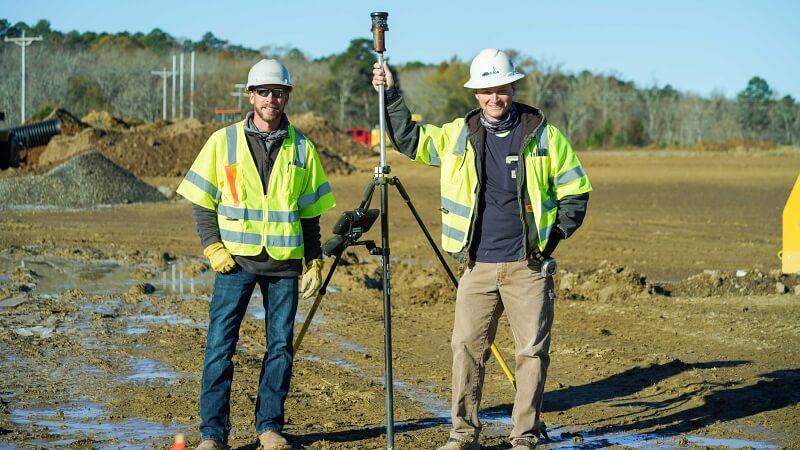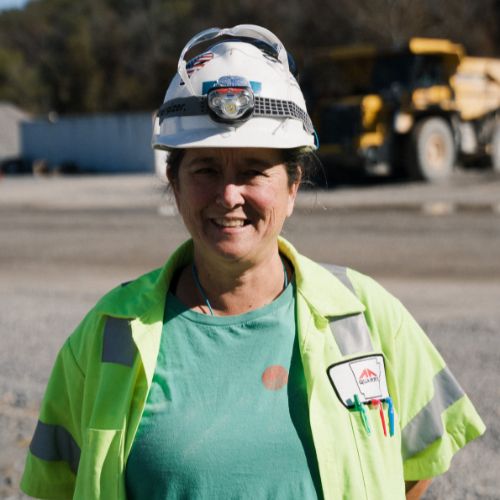If you’re planning a concrete project – whether it’s a sidewalk, driveway, slab, or commercial foundation – you might wonder why gravel is often included underneath. The truth is, gravel under concrete is one of the most critical components of a long-lasting, durable foundation. Without it, even the most expertly poured concrete can crack, shift, or settle prematurely. In this blog, we’ll explain why gravel under concrete matters, how it supports the strength of a foundation, and what happens when it’s ignored. If you’re in construction, landscaping, or planning your next project, this guide will help you understand the importance of getting your base right from the start.
What Does Gravel Do Under Concrete?
Gravel serves as a stable base layer that provides structural support and drainage beneath poured concrete. Its primary purposes include:
- Improving drainage and preventing water buildup
- Distributing weight evenly
- Preventing soil movement and settling
- Enhancing concrete longevity and reducing cracking
Without gravel, concrete is more likely to suffer from uneven settling, cracking due to water retention, and long-term structural failure. This seemingly simple layer acts as a cushion between the raw earth and your finished slab, helping to protect the investment from below.
Why Drainage Matters
Water is one of concrete’s biggest enemies. When water builds up underneath a slab – either from rain, groundwater, or irrigation – it exerts pressure on the underside of the concrete. Over time, this pressure can lead to heaving, cracking, or even structural collapse in extreme cases.
Gravel provides a drainage layer that allows water to escape and reduces the risk of pooling directly beneath the slab. The voids between the stones allow water to pass through and drain away from the concrete, reducing the likelihood of frost heave during colder months or erosion during wet seasons. Without a gravel layer, water gets trapped beneath the slab, eventually weakening the soil and causing settlement.
Even Load Distribution
Concrete may seem strong, but without proper support, it’s vulnerable to stress. Uneven or unstable soil beneath the slab can cause concentrated pressure points, which can lead to cracks, tilting, or even complete failure in load-bearing applications.
A properly compacted gravel base distributes the weight of the concrete – and any loads placed on it – across a wider area. This spreads pressure more evenly, reducing the risk of cracking or sinking. This is especially important for driveways, roadways, commercial floors, and other high-traffic surfaces that experience heavy loads over time.
Protection Against Soil Shifting
Different soil types expand and contract depending on their composition and the amount of moisture they retain. Clay-rich soils, for instance, swell when wet and shrink when dry. Over time, these movements can cause a slab to shift or crack.
Gravel acts as a buffer between the soil and concrete, reducing the impact of these shifts. A well-prepared gravel base absorbs minor movements and helps keep the slab in place, especially in areas with variable soil conditions or extreme weather patterns like those seen throughout Arkansas.
How Much Gravel Is Needed?
For most concrete slabs, a gravel base of 4 to 6 inches is recommended. However, thicker layers (up to 12 inches) may be necessary for commercial applications or areas with poor drainage. The gravel should be compacted thoroughly before the concrete is poured to ensure stability.
The type of gravel used also matters. Contractors typically opt for ¾-inch crushed stone or road base material, which compacts well and offers excellent drainage. Finer materials, like sand, may not provide the same support or stability.
Common Applications That Require Gravel Under Concrete
Gravel bases are used in a variety of concrete construction applications, including:
Driveways and Parking Lots
Gravel bases are critical for long-term durability, especially when supporting vehicles. Without a solid gravel foundation, the concrete may crack under pressure or develop ruts from tire traffic.
Sidewalks and Walkways
Even small slabs benefit from a gravel base, especially in freeze-thaw climates. Proper drainage keeps walkways level and reduces the need for early repairs.
Commercial and Industrial Slabs
Large slabs that support heavy equipment, storage areas, or foot traffic require an engineered gravel base to prevent movement and maintain surface integrity.
Building Foundations
For poured concrete footings and foundation walls, gravel plays a role in drainage and soil stabilization. It helps prevent water from pooling near the foundation, which could compromise its strength.
What Happens If You Skip the Gravel?
Skipping the gravel base can lead to a number of costly problems:
- Cracking and settlement due to uneven or shifting soil
- Moisture issues like mold, mildew, or water intrusion
- Heaving or lifting in freeze-thaw environments
- Reduced concrete lifespan, requiring premature replacement or repair
While it may seem like a way to cut costs, omitting the gravel can ultimately lead to higher long-term expenses and more frequent maintenance.
Concrete RedStone Construction Group Today
When it comes to building strong, durable concrete structures, gravel is not an optional feature – it is a necessity. It supports your slab, protects it from water damage, and prevents soil-related failures that can lead to expensive repairs. Whether you are working on a commercial job site, residential property, or municipal project, installing gravel under your concrete is one of the most important steps in the construction process.
Located in Little Rock, Arkansas, and serving the surrounding areas, our team at RedStone Construction Group offers expert concrete, base, and earthwork services that ensure your project is built to last. We also specialize in asphalt paving, milling, parking lot maintenance, underground utilities, erosion control, and more.
For a consultation or to learn more about how we can support your next project, call RedStone Construction Group at (501) 374-1557 or email info@redstone-cg.com. Let us help you build with confidence – from the ground up.






